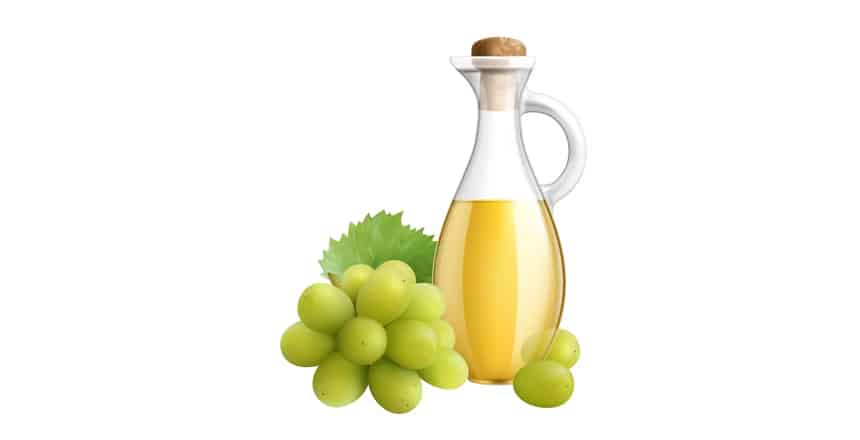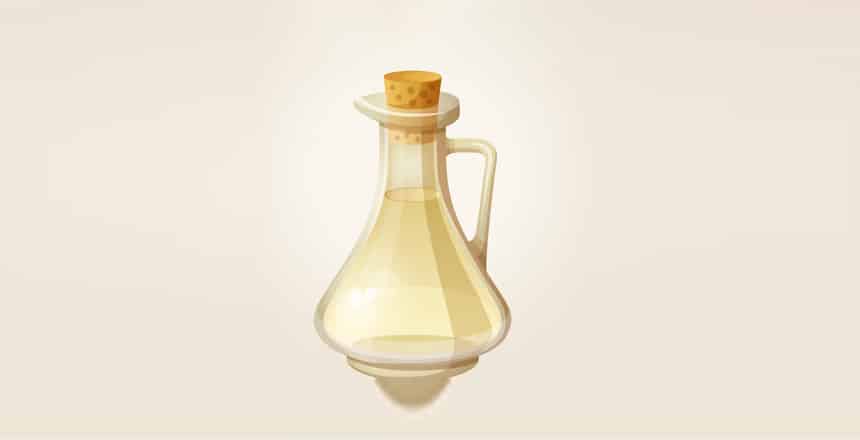When it comes to cooking, there are many different types of vinegar you can use. Two common ones are white wine vinegar and white vinegar. At the first glance, they may look similar and have the same basic ingredient – acetic acid. But, what are the differences between white wine vinegar and white vinegar? The truth is that they have distinct differences in flavor, taste, health benefits, and uses.
As a home cook or professional chef, it’s vital to understand the subtle nuances between these two powerful ingredients to ensure you pick the right one for your recipe. So, follow this blog to investigate what differences between these two kinds of vinegar and how each can be used for various purposes in cooking.
Related:
- What is Sweet White Wine
- Is Chardonnay Sweet Or Dry
- How Many Liters Are in a Bottle of Wine
- How Many Liters Are in a Bottle of Wine
Contents
What Is White Wine Vinegar?

White wine vinegar is a type of vinegar created through the fermentation of white wine with acetic acid bacteria. This process produces a light, delicate vinegar with a subtly fruity or floral flavor, depending on the type of white wine used.
White wine vinegar is often preferred for cooking and culinary applications due to its more nuanced flavor profile in comparison to other types of vinegar, such as distilled white vinegar.
White wine vinegar is commonly used in a variety of dishes that require a milder acidity.
What Is White Vinegar?

White vinegar is created from distilled grain alcohol that has been fermented with acetic acid bacteria. This process yields an acetic acid solution which is then mixed with distilled water to dilute it and form a consistent strength of 5-8% acidity.
The final product is clear, colorless, and features a strong and pungent flavor – making it a go-to ingredient across many recipes and cleaning needs. However, because of its potency, white vinegar should always be used sparingly and diluted accordingly when utilized for different purposes.
What Makes White Wine Vinegar Different From White Vinegar?
The major difference between white wine vinegar and white vinegar is in the fermentation process, appearance, taste, smell as well as uses.
1. Fermentation Process
White wine vinegar is created by fermenting white wine with acetic acid bacteria. For this, the wine is left open to the air so that the bacteria can grow and convert its alcohol into acetic acid.
The time frame of the process may vary from a few days to several months, depending on the flavor and strength of vinegar desired in the end. After the acetic acid has been formed, it is then appropriately diluted with water to balance its pH level in the range of 2.6 to 2.8 before bottling it up.
Unlike white wine vinegar, white vinegar is produced by fermenting a distilled grain alcohol such as corn or wheat with acetic acid bacteria. The grain alcohol is first diluted with water and then exposed to the bacteria which turn it into acetic acid. The fermentation can take anywhere from a few weeks to a maximum of a half years or more, after which it is filtered and bottled up.
2. Appearance
White wine vinegar and white vinegar can appear similar, both being clear and colorless. However, there may be slight variations depending upon their production method and additional processing done.
White wine vinegar may have a light golden hue due to the grapes used in making it. It might also show some cloudiness as a result of natural components from the wine present in it.
On the other hand, white vinegar is generally clear with a strong odor because of its high acidity. This makes it distinct from other kinds of vinegar that have darker or cloudier colors. When used sparingly, this sharp smell can add an extra tangy flavor to certain dishes.
3. Taste
White wine vinegar has a subtle, fruity and acidic flavor profile due to its origins in white wine. It has a hint of sweetness that makes it great for adding flavor to a variety of dishes such as salads, marinades, and sauces.
In contrast, white vinegar has a sharp, acidic taste that can be quite overpowering when used in large amounts. Its high acidity and lack of flavor makes it perfect for cleaning and pickling purposes.
4. Smell
White wine vinegar has a gentle, fruity aroma with a slightly sweet undertone because of its white wine origins. Its scent is not overwhelming and can add a pleasant fragrance to meals.
In contrast, white vinegar has a sharp, sour, and very intense flavor. The strong smell of white vinegar is caused by its high acidity and lack of taste, making it a popular choice for cleaning and sanitizing.
5. Uses
White wine vinegar is mainly used for culinary purposes to enhance the flavor of dishes. It can be used as a marinade, salad dressing, or in sauces and condiments.
On the other hand, white vinegar is great for cleaning, sanitizing and disinfecting surfaces, and removing stains from fabric and clothes. Additionally, it can be used to pickle vegetables or preserve ingredients like onions and garlic for longer shelf life. White vinegar also makes an effective all-purpose cleaner because of its strong acidic properties.
Can I Substitute White Vinegar for White Wine Vinegar?
White wine vinegar and white vinegar are similar in some ways, but they should not be used interchangeably in recipes. It is not recommended to substitute white vinegar for white wine vinegar or vice versa as they have distinct flavors and different uses beyond cooking. It is best to use the type of vinegar specified in a recipe.
If you need to substitute white wine vinegar, champagne vinegar, rice vinegar, apple cider vinegar, sherry vinegar, or lemon/lime juice may be a suitable alternative. Keep in mind that using different types of kinds of vinegar can change the flavor and acidity level of a recipe.
For pickling or canning, it is recommended to use actual white vinegar to ensure food safety and proper preservation. White vinegar has a sharp sour taste and high acidity, which can be replaced by apple cider vinegar or malt vinegar in some recipes.
However, it is vital to consider the flavor profile of the dish when making a substitution. Lemon or lime juice may also be used as an alternative if no vinegar is available.
What are the Health Benefits of White Wine Vinegar and White Vinegar?
White wine vinegar and white vinegar are both popular types of vinegar that can offer a variety of health benefits when consumed in moderation.
White wine vinegar is rich in antioxidants which help to protect the body from cell damage and promote overall well-being. It contains acetic acid, which can lower bad cholesterol levels, reduce blood sugar levels, and improve digestion. White wine vinegar also has antibacterial properties, making it beneficial for fighting off infections.
White vinegar is also known for its health benefits due to its high acetic acid content. It can aid in weight loss by boosting the metabolism, improving digestion, and reducing water retention in the body. Additionally, white vinegar has antibacterial properties which make it an effective natural disinfectant that can prevent food poisoning. It can also be used to relieve skin irritations such as sunburn and acne.
Both white wine vinegar and white vinegar offer a variety of health benefits and have different uses in the kitchen. It is vital to consider the flavor profile of dishes before using either type of vinegar. The right choice will depend on the individual’s taste preference and recipe requirements.
FAQs
Is White Wine Vinegar Similar to White Vinegar?
No, white wine vinegar and white vinegar are not similar. White wine vinegar is made by fermenting white wine, while white vinegar is made through the fermentation of grain alcohol.
Is White Vinegar or White Wine Vinegar Better For Baking?
Unlike distilled vinegar, which is typically preferred for cleaning purposes, white wine vinegar is more commonly used for cooking. White wine vinegar’s milder flavor is better suited for recipes where a subtle vinegar taste is desired, such as in pie crusts or savory baked dishes.
What Vinegar is Closest to White Wine Vinegar?
Champagne vinegar, rice vinegar, and white balsamic vinegar are all good substitutes for white wine vinegar, as they have a similar mild and slightly sweet taste.
What Is White Wine Vinegar also Called?
Distilled vinegar or spirit vinegar, commonly referred to as white vinegar, is produced by fermenting grain alcohol, usually derived from corn, with acetic acid bacteria.
Are There 2 Kinds of White Vinegar?
Yes, there are two main kinds of white vinegar: distilled white vinegar and white wine vinegar.
Final Thought
All in all, it is quite clear that white wine vinegar and white vinegar are two very different products from the fermentation process to the flavor and uses though they have many similar properties.
For these differences, taking advantage of these distinct flavors and uses for both types of vinegar is essential for anyone who desires perfect flavors with every meal.
